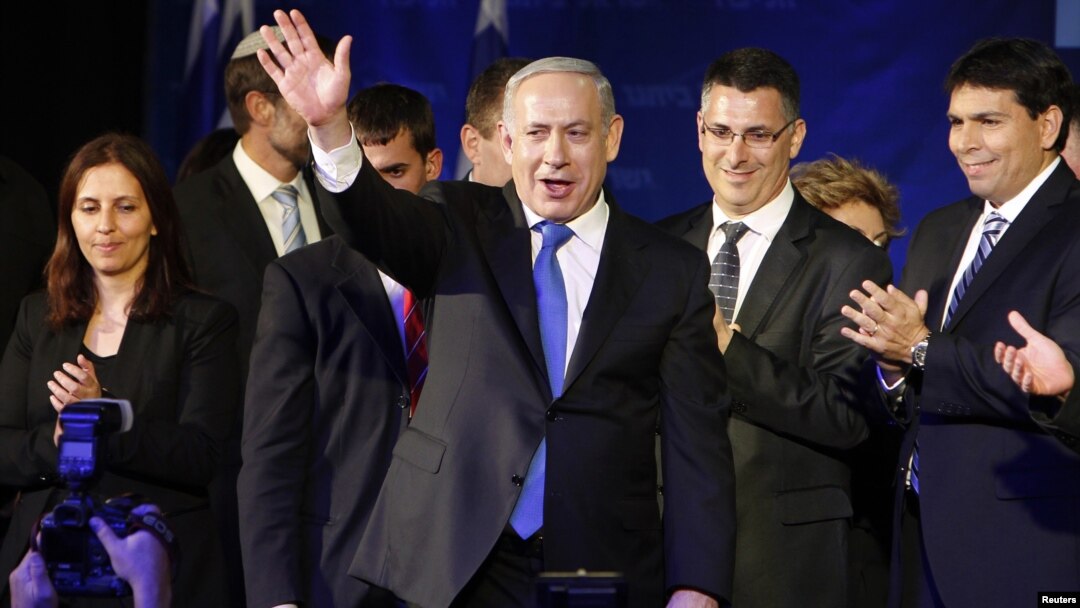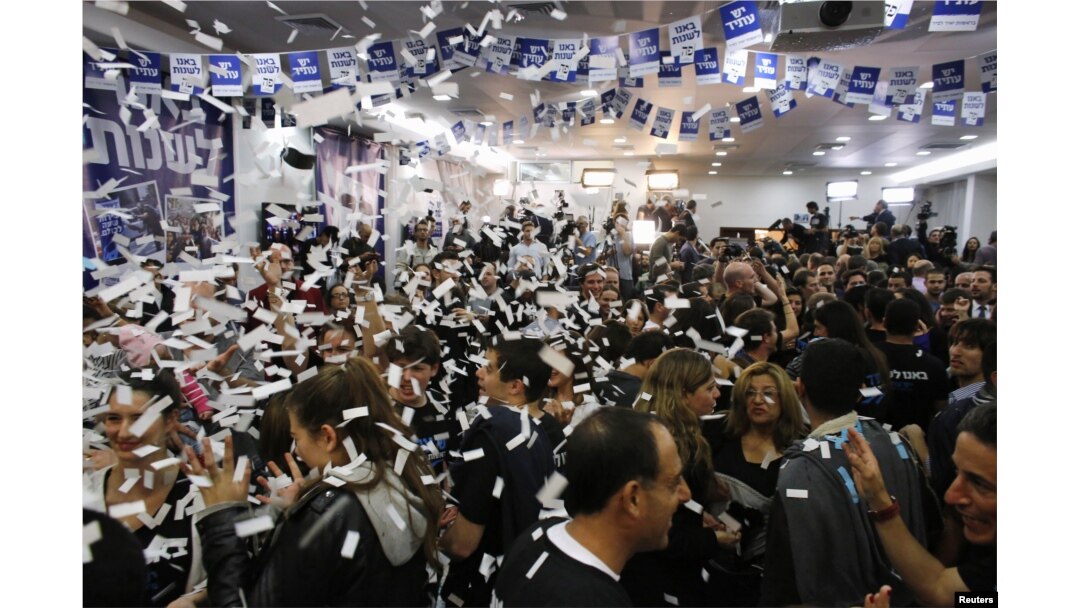Preliminary election results show Israel's right-wing and center-left blocs winning an even split of seats in parliament -- a surprise result that leaves Prime Minister Benjamin Netanyahu working to form a new ruling coalition.
With more than 99 percent of the vote counted Wednesday, each side had 60 seats in the 120-member Knesset.
Netanyahu's hard-line Likud party alliance with the Yisrael Beitenu party led with 31 seats - 11 fewer than its 42 spots in the previous parliament. The prime minister is expected to be asked to form a government, a task made more difficult by the unexpected success of centrist parties.
Surprises
The biggest surprise came from the secular Yesh Atid party, which won 19 seats, beating out the Labor Party's 17 seats and the 12 seats won by the far-right religious nationalist Jewish Home party.
Netanyahu claimed victory and vowed to form as broad a coalition as possible.
He told cheering supporters "the first challenge was and remains preventing Iran from obtaining nuclear weapons." He also said he hopes to "effect the kind of change the Israeli people are waiting for" with "the broadest government possible."
Nearly 67 percent of Israel's 5.5 million voters cast ballots Tuesday, a larger turnout than in previous elections. Some analysts say the turnout may have helped centrists gain traction and win legislative seats.
Official tallies are expected next week.
With more than 99 percent of the vote counted Wednesday, each side had 60 seats in the 120-member Knesset.
Netanyahu's hard-line Likud party alliance with the Yisrael Beitenu party led with 31 seats - 11 fewer than its 42 spots in the previous parliament. The prime minister is expected to be asked to form a government, a task made more difficult by the unexpected success of centrist parties.
Surprises
Israel's major parties
Israel's Major Political Parties:
- Likud: Israel's main conservative party; supports the Israeli settlement movement in the occupied West Bank
- Yisrael Beitenu (Israel Our Home): Secular, nationalist party that wants to redraw borders so that parts of Israel with large Arab populations would be in a Palestinian state
- Yesh Atid: Centrist party founded by former journalist Yair Lapid in 2012
- Labor: Center-left party; supports renewing peace negotiations with the Palestinians and dismantling most Israeli settlements
- Shas (Union of Sephardic Torah Observers): Represents Israel's ultra-orthodox Jews of Middle Eastern, Mediterranean and Spanish origin and advocates a nation based on Jewish religious law
- Habayit Hayehudi (Jewish Home): Far-right party that advocates annexing more than half the West Bank and opposes the Oslo Peace Accords
Netanyahu claimed victory and vowed to form as broad a coalition as possible.
He told cheering supporters "the first challenge was and remains preventing Iran from obtaining nuclear weapons." He also said he hopes to "effect the kind of change the Israeli people are waiting for" with "the broadest government possible."
Nearly 67 percent of Israel's 5.5 million voters cast ballots Tuesday, a larger turnout than in previous elections. Some analysts say the turnout may have helped centrists gain traction and win legislative seats.
Official tallies are expected next week.
Israel's General Election



